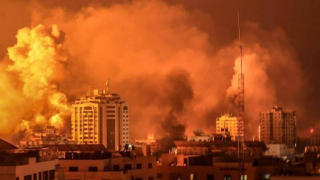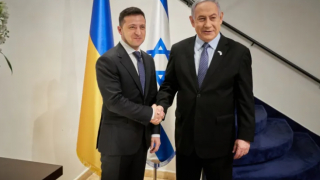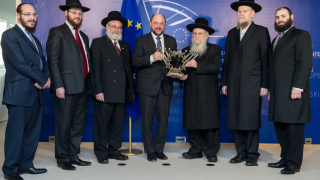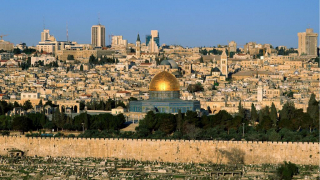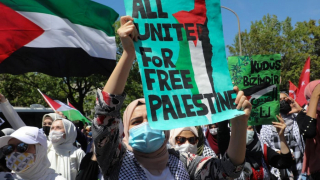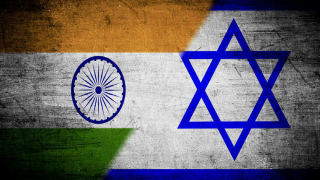Is Bahrain a Fertile Environment to Foster the so-called Abraham Accord's Peace Claims?
04.11.2020
In the so-called Abraham Accord, which it has signed in Septembre, without consulting the citizens, Manama affirmed its commitment to peace and coexistence. In recent years, the government has frequently claimed to be a beacon of peace, coexistence and pluralism; nevertheless, that's a false myth.
The indigenous population of Bahrain has never experienced any sort coexistence. Since its independence from Britain in the latter half of the 20th century, Manama has sought fresh reprisal methods to keep its Shiite population as subservient subjects.
The Shiite of Bahrain, who account for about 70% of the population, have long endured a systematic harassment. This involves an intensified wave of arrests, detentions, summons, interrogations, torture, sham trials, arbitrary sentences, execution, citizenship revocations, and fabricated criminal charges brought against Shiite citizens, religious leaders, poltical activists, human rights defenders for over 4 consecutive decades now.
Many international reports have alluded to the persecution of the Shiite by Manama. For instance, J.G Lorimer, an Officiating British Resident present in the Gulf during the early 1900s: “Even though the Baharna [Shiite of Bahrain] are superior in terms of numbers, they are not relevant in the political landscape. In reality, their situation is slightly better than the slaves."
In the aftermath of the 2011 uprising, the Bahraini Shiites' freedoms have been severely restricted merely because they demanded political reforms, addressing the security forces abuses and establishing a just government which has a decision-making powers.
Above all, Bahrain's Shiite mosques have been one of the most sensitive targets in the government's retaliatory crackdown. The Bahrainis never forget how the government brought its bulldozers, as retribution for their 2011 uprising, and brutally struck roughly 40 Shiite mosques including the historical Sasa'a bin Sawhan mosque, which has connections to the earliest periods of Islam in the 7th century.
Later, their main opposition bloc, Al-Wefaq National Islamic Society, was arbitraly dissolved, along with shutting scores of the Shiite's political, social and educational organisations.
In 2017, five protesters were murdered and hundreds were arrested when security forces violently dispersed a peaceful sit-in set up in the village of Duraz next to the residence of Bahrain's highest religious authority Ayatollah Sheikh Isa Qassim, who was convicted of 'money laundering' and had his citizenship revoked.
Observers say that Manama has increasingly exploited the controversial anti-terrorism law to silence and undermine its Shiite critics.
A wide range of groundless charges including illegal gathering, inciting hatred against the regime, money laundering and acts of terrorism have been brought against them in relation to their peaceful religious activities, congregations and Friday prayers.
Besides, Manama has laboriously modified the demographic by carrying out mass political naturalisation of at least 100,000 Sunni Arabs and South Asians to boost the Sunni population and allow elections to be misrepresented. This process of political naturalisation has been revealed by former adviser to the Cabinet Affairs Ministry Dr. Salah al-Bandar in 2006.
The Al Bandar Report shows plans to exclude and marginalise Bahrain's Shiite in all executive branches, cleanse their existence from national institutions, and prevent them from educational opportunities and various other benefits. Huge funds were set aside for this sectarian project, which was led and financed by the Al Khalifa ruling family, with collaboration from members of the National Assembly and senior officials.
What happens in Bahrain is exactly a copy of the white southerners in Jim Crow America and their now Zionists 'compatriots' in the occupied Palestinian lands, whereby 70% of the indigenous population are not eligible for any governmental or leading positions merely because they are deemed second class citizens.
Manama government is pretty much a family company because if it were really a democratic system, it would have consulted its people before taking this crucial step, knowing that the vast majority of Bahrain's citizens, not only the Shiites, but even the Sunnis and the leftists, denounce any ties with the Apartheid regime.
Just like Egypt's and Jordan's alleged peace deals, signed in 1979 and 1994, the same is true for Bahrain. No peace is expected but deterioration of an already deteriorated economy. Normalisation of ties with Tel Aviv has never brought any progress to these governments but additional corruption, incompetence in national politics and governance, crisis in petroleum export prices and unrests.



